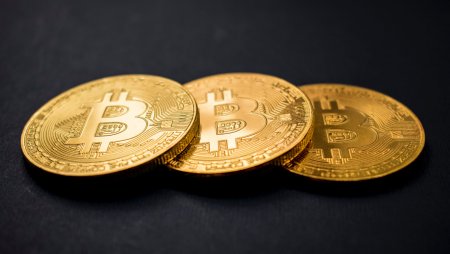Hyperinflation Drives Venezuela’s Shift to Cryptocurrency
11.11.2025
News / Economy / Analytics
Venezuela's hyperinflation accelerates crypto adoption.
Major retail outlets in Venezuela are increasingly adopting cryptocurrency payments, with projections that by early 2026, these will account for at least 10% of all grocery transactions. This was stated by Italo Atencio, head of the country‚Äôs National Association of Supermarkets, during a¬Ýbroadcast on a local television channel.
According to him, Venezuelans regularly use digital assets for purchases. Three grocery chains have already started accepting cryptocurrencies, and their number is growing.¬Ý
The current interest is driven by hyperinflation, which reached 270% in October, according to the¬ÝIMF. Another reason is the sanctions from the United States, which limit access to the US dollar and¬Ýforce residents and companies to seek alternative routes.¬Ý
 Venezuela has previously attempted to implement crypto payments in retail outlets nationwide. In 2019, as part of President Nicolas Maduro’s initiative to use new technologies, retail chains Traki, FarMarket, and FarmaRato adopted this payment method.
Venezuela has previously attempted to implement crypto payments in retail outlets nationwide. In 2019, as part of President Nicolas Maduro’s initiative to use new technologies, retail chains Traki, FarMarket, and FarmaRato adopted this payment method.
Meanwhile, work is underway in Venezuela with banks to provide custodial services for¬Ýstablecoins, primarily¬ÝUSDT.
In September 2025, Reuters sources¬Ýreported that the government is gradually allowing the use of dollar-pegged ‚Äústablecoins‚Äù on currency exchanges for the private sector.
According to agency sources, this helps sustain the economy under sanctions, including the production of essential goods.¬Ý
Firms sell cryptocurrency or use it for transactions between domestic and international suppliers.¬Ý
Official statistics are lacking. However, local analytical company Ecoanalitica estimated the volume of digital asset sales to the private sector at $119 million in July.¬Ý
Major retail outlets in Venezuela are increasingly adopting cryptocurrency payments, with projections that by early 2026, these will account for at least 10% of all grocery transactions. This was stated by Italo Atencio, head of the country‚Äôs National Association of Supermarkets, during a¬Ýbroadcast on a local television channel.
According to him, Venezuelans regularly use digital assets for purchases. Three grocery chains have already started accepting cryptocurrencies, and their number is growing.¬Ý
“Crypto assets are the currencies of the future, which has already arrived,” said Atencio.To accelerate adoption, retailers have turned to experts in digital assets and blockchain. Among them is Anibal Garrido from Andres Bello University in Caracas, who is involved in training staff to work with cryptocurrencies.
The current interest is driven by hyperinflation, which reached 270% in October, according to the¬ÝIMF. Another reason is the sanctions from the United States, which limit access to the US dollar and¬Ýforce residents and companies to seek alternative routes.¬Ý
 Venezuela has previously attempted to implement crypto payments in retail outlets nationwide. In 2019, as part of President Nicolas Maduro’s initiative to use new technologies, retail chains Traki, FarMarket, and FarmaRato adopted this payment method.
Venezuela has previously attempted to implement crypto payments in retail outlets nationwide. In 2019, as part of President Nicolas Maduro‚Äôs initiative to use new technologies, retail chains Traki, FarMarket, and FarmaRato adopted this payment method.Circumventing Sanctions with USDT¬Ý¬Ý
Local fintech companies like Crixto are developing special wallets for digital asset payments in stores without specialized terminals.¬ÝMeanwhile, work is underway in Venezuela with banks to provide custodial services for¬Ýstablecoins, primarily¬ÝUSDT.
In September 2025, Reuters sources¬Ýreported that the government is gradually allowing the use of dollar-pegged ‚Äústablecoins‚Äù on currency exchanges for the private sector.
According to agency sources, this helps sustain the economy under sanctions, including the production of essential goods.¬Ý
‚ÄúWhen one door closes, others open,‚Äù commented one Venezuelan businessman.A limited number of banks are already selling digital assets to some companies in exchange for the national currency‚Äîbolivars. A special crypto wallet, approved by the authorities, is used for transactions.¬Ý
Firms sell cryptocurrency or use it for transactions between domestic and international suppliers.¬Ý
Official statistics are lacking. However, local analytical company Ecoanalitica estimated the volume of digital asset sales to the private sector at $119 million in July.¬Ý
Similar news:
04.04.2024
Unified Liquidity Platform Range Protocol Unveils Skate: The First Universal Application Layer Powering Apps to Run on All Chains With One State
23.08.2023
15.11.2022





